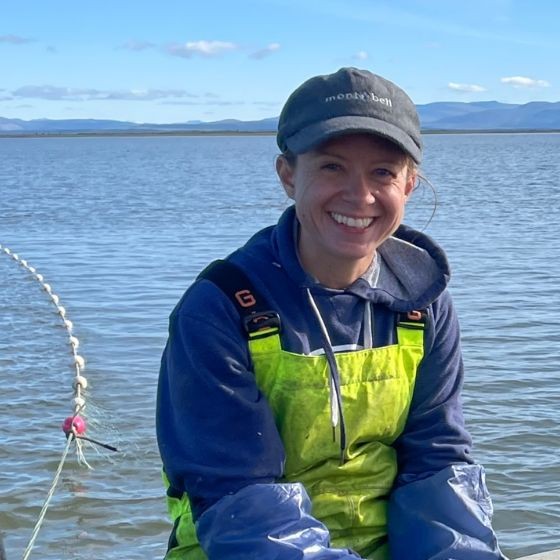In January, Anne Kelly, TNC Alaska Deputy Director teamed up with the Center for Ocean Leadership to research and find solutions for preventing high rates of harassment and assault against field researchers. Their published recommendations, on which she testified before the U.S. House Committee on Science and Technology, were ultimately included in the report in the federal CHIPS and Science Act. Anne is now working to implement these recommendations in TNC policy and practice.
“Because we have engaged in this work by following our partners’ leads, we have no room to act without integrity. This is really the heart of meaningful justice and equity work: the power dynamic is upended, and our local communities and Indigenous partners are
driving the goals. It’s a more equitable process that will lead to more equitable outcomes.”
— Dr. Anne Kelly, Deputy Director, TNC Alaska
-
My background is in scientific research and education. I have many motivations for centering DEIJ in my work, but ultimately, I value social justice and equity. I do the research and education work that I do in order to make our society more just and healthier for everyone. I also try to use all aspects of my work to advance social justice and equity for my coworkers, for my community, and for the people we engage with in our work.
-
TNC needs to take more steps to ensure that its staff and our community partners are safe in the field, and that includes addressing all aspects of safety, including our work climates. Bullying, harassment, and/or assault are experienced by the majority of field scientists. These behaviors drive minoritized people away from environmental work. This means that not only are our workplaces less just and equitable, but that our work is not led by the people who can best advocate for environmental justice and equity in our strategic direction.
-
This work is long overdue. I’m excited that with the rise of #MeToo and other related movements, these conversations are finally normalized. We need to move past the “awareness” phase of the problem and lean into solutions. Happily, our communities have been developing solutions from the grassroots for decades. The tools are there; we just need to pick them up and use them.
DEIJ work is not separate from our work. It’s not a post-hoc audit or a box to check as part of a project. It must be woven into everything we do. We must always ask ourselves in every process, ‘Who isn’t at the table right now, and why not? Is the table itself built to exclude people? Do we need to rebuild it, or flip it over and have a completely different approach?’ We need to be willing to give our power away in conversations with partners, and work by supporting equitable leadership rather than set goals first and ask how to get buy-in afterwards.
-
Our work at TNC Alaska is beginning to demonstrate some equity and justice in meaningful ways. Particularly in our Indigenous-led conservation partnerships in Southeast Alaska, our partners continually hold us accountable to our integrity and to our commitments to them. If we were not accountable, these partnerships would quickly fail and TNC would no longer be invited to the table. Because we have engaged in this work by following our partners’ leads, we have no room to act without integrity. This is really the heart of meaningful justice and equity work: the power dynamic is upended, and our local communities and Indigenous partners are driving the goals. It’s a more equitable process that will lead to more equitable outcomes.

